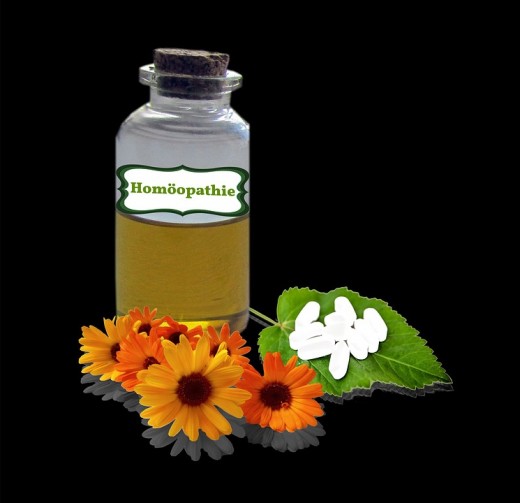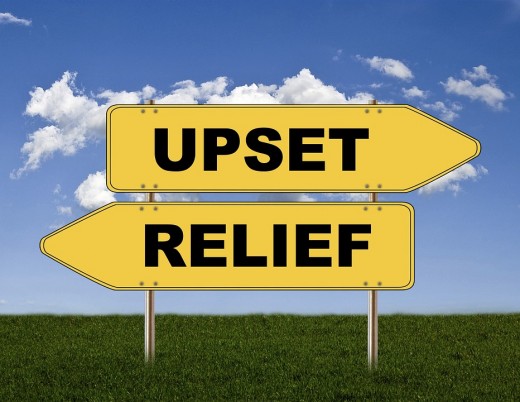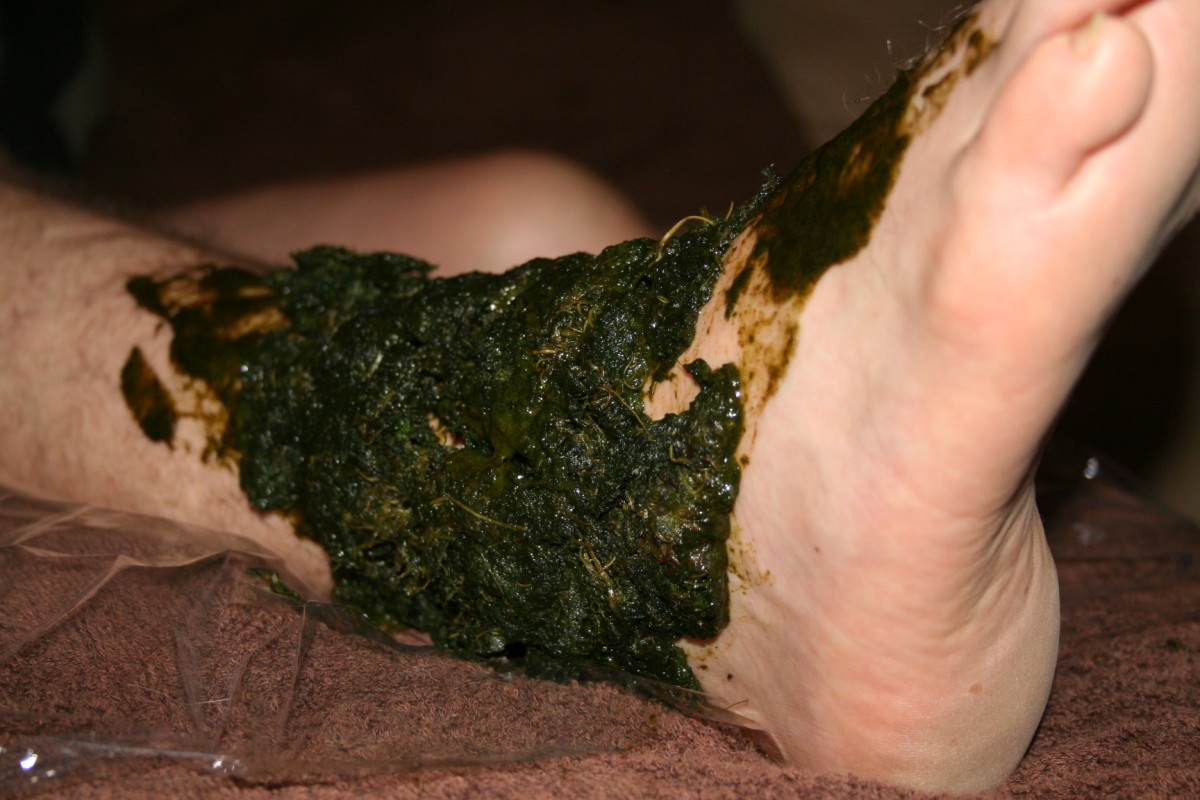Choosing the Right Homeopathic Remedy
Narrowing Down the Selection
There are hundreds of homeopathic remedies. So, in order to find the right one, you need to narrow down the field. Typically, only a few of the available selections will help. One remedy will be the most appropriate match, and you'll obtain the best results when you find it.
The wrong remedy will either do nothing, or it will make the existing situation temporarily worse. When you're dealing with a sick child, you're looking for rapid improvement. A child usually rebounds quickly when given the right remedy during an acute illness, such as when he or she is fighting the flu.
Homeopathy is remarkably effective, as long as you find the right remedy. A lot of times, this is much easier said than done. It can be a frustrating process, especially if you're just beginning to learn how to treat minor illnesses at home. That's why it's always advisable to work with a professional.
Ideally, you and your homeopath should form a partnership. A good practitioner welcomes input from the patient, or the patient's parents. That's because homeopathy is three parts science and one part intuition. You need to listen to your gut feeling, which often leads you in the right direction. Both you and your homeopath should be open to this approach, as I'll explain later in this article.

The History of Homeopathy in the United States
Homeopathic remedies are chosen based upon symptoms, which arise from the body's attempt to heal itself.
Each remedy is made from a substance that would be toxic if taken in large doses. It would also cause the same symptoms you want to resolve. The homeopathic preparations are highly diluted, so, usually, no trace of the original is left. This form of medicine operates on the principle of "like cures like," although, to be honest, no one is sure exactly how it works.
However, a few generations ago, people were less focused on the mechanics, than they were on the end result. Homeopathy became wildly popular in the United States. Around the dawn of the 20th century, it was a dominant form of healthcare in America, as one-third of the medical facilities were homeopathic hospitals.
The rise of the American Medical Association, and the invention of antibiotics, spelled an end for these institutes. However, in recent years, there's been a resurgence of interest in natural healing.
Written by a Mother Who Cured Her Son of Autism With Homeopathy
Focusing On Unusual Symptoms
I've been studying homeopathy on my own, and also with experienced practitioners, for about 17 years. One mistake I made in the beginning was to make a long list of symptoms. But this rarely worked.
What I needed to do, instead, was to focus on the three or four of the most intense symptoms, giving special attention to the "chief complaint." For instance, someone might have the flu. Looking at them, I might think lethargy is what needs to be addressed. However, they might think otherwise. A raw, burning sore throat might be causing the most agony. This is what needs to be alleviated.
Also, unusual symptoms carry more weight than commonplace complaints. Getting excited during thunderstorms, or refusing to eat mixed foods, such as a casserole, deserve more notice than simply having a dull headache. Most people get these from time to time.
However, if the headache is so intense that it prevents someone from functioning, this is the overriding symptom.
Some of the best advice I've ever heard is that if you are stuck between two or three remedies, focus on the "modalities." These are conditions that make symptoms better or worse. The illness might intensify between the hours of 4 and 8 pm, which may point to the need for a very common preparation known as lycopodium.
Or, someone might feel better during overcast weather, something often seen when the picture matches homeopathic causticum.

Materia Medica by Robin Murphy
Not Everything Will Match Exactly
A good homeopathic Materia Medica describes each remedy, along with an extensive list of symptoms. My favorite reference is authored by expert homeopath Robin Murphy, along with a companion reperatory that helps direct you to the right remedy.
However, given all the many conditions that each remedy can address, you wont find a perfect fit. Instead, you're looking for a good match. There will be some things that won't apply, and this should be expected.
During an acute situation, you will usually find the right selection among the more popular remedies. Many of the more exotic remedies are not well studied. In a clinical practice, most homeopaths typically use only a limited list of the 80 or so top choices, such as sulphur, rhus toxicodendron, gelsemium, belladonna, arsenicum album and ferrum phosphorus.
Common Homeopathic Terms
Modality
| Materia Medica
| Reperatory
| Proving
| Potency
|
|---|---|---|---|---|
This describes particular circumstances that make someone's condition worse, such as drinking something cold or being exposed to the wind
| This is a book of homeopathy that lists the symptoms of each remedy.
| This is a companion to the Materia Medica, where you match the symptoms to a potential remedy.
| This is the set of symptoms that appear if you take large, repeated doses of a remedy.
| This is the term that describes the strength of a remedy.
|
Video from the Natural Center for Homeopathy
Everybody's Guide to Homeopathic Medicines
Whoops, You've Made a Mistake
The best homeopaths, even with books and online resources, don't get it right 100 percent of the time, and some trail and error is required.
In an acute situation, the patient typically experiences quick relief. But it may happen more slowly. Sometimes the right remedy will cause drowsiness. That means a nap, or a deep restful sleep, is what's needed. You won't notice much improvement until the patient wakes up.
In a chronic situation, the right remedy may cause an aggravation, a temporary worsening of the condition. This is actually a good sign that improvement will follow.
If you notice any new symptoms, stop taking the remedy and call your homeopath. You might have had too many doses or you might need a new remedy. Usually these "provings" resolve on their own within a short period of time.

A Basic Remedy Kit to Get Started
Trusting Your Intuition
Homeopathy is our family's first line of defense. We reserve the option of calling our regular physician for anything that can't be handled with a remedy.
If you want to learn more about homeopathy, try to find a good homeopath. This partnership will be much different than the typical doctor/patient relationship. A homeopath will want, and need, a lot of input from you. That's why it's important that there's mutual respect.
For instance, recently, my teenage son was sick with a high fever and some other complaints. I called my homeopath to discuss his illness. She needed my perspective because I could tell her things she wouldn't otherwise know, such as the fact that his eyes looked very "droopy" and a bit glazed. This information was a strong indication he needed one remedy, instead of another. My mother's intuition assisted us in making the right choice.
If you've found a homeopath who values your input, then you've found a treasure.
Disclaimer
These statements have not been evaluated by the Food and Drug Administration (FDA). These products are not meant to diagnose‚ treat or cure any disease or medical condition.
This article is for information and discussion purposes only, and is not intended as medical advice. Self prescription is not recommended, and for best results, you should work with a professional homeopath. The author assumes no responsibility for treatment decisions or outcomes. People with health concerns should discuss them with a licensed practitioner. Women who are pregnant or nursing should not use homeopathic remedies unless directed to do so by a healthcare professional.
Disclosure
I am a participant in the Amazon Services LLC Associates Program, an affiliate advertising program designed to provide a means for sites to earn advertising fees by advertising and linking to amazon.com.












